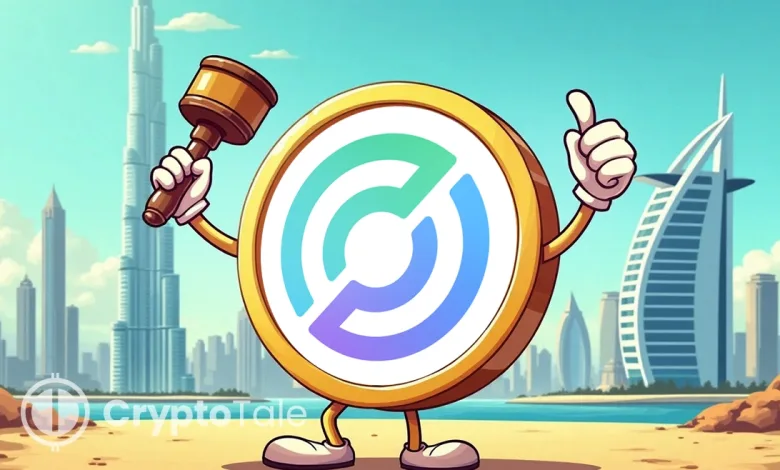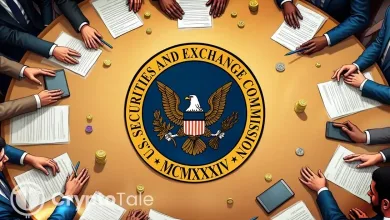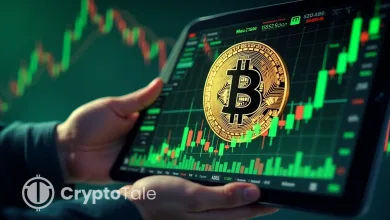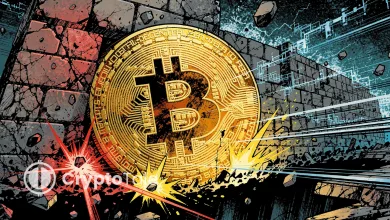Circle Wins Approval to Run Stablecoin Services in Abu Dhabi

- Circle received initial approval from FSRA of ADGM but still needs full licensing.
- The IPA confirms Circle meets key conditions set by the FSRA for further licensing steps.
- Circle’s move supports stronger regulation and stablecoin use in the Middle East and Africa.
Circle Internet Group, Inc., a global financial technology firm, has secured In-Principle Approval (IPA) from the Financial Services Regulatory Authority (FSRA) of Abu Dhabi Global Market (ADGM). The approval marks a pivotal step towards receiving a full Financial Services Permission (FSP) under ADGM’s progressive digital finance framework. With this IPA, Circle moves closer to lawfully offering regulated financial services using USDC in the ADGM zone, pending full Financial Services Permission.
A Strategic Move in the Middle East and Africa
The IPA strengthens Circle’s presence in the Middle East and Africa (MEA), following its registration with ADGM in December 2024. According to Circle, this milestone reinforces its long-term strategy to build a legal presence in Abu Dhabi’s financial free zone. The approval means Circle meets FSRA’s basic regulatory requirements and is advancing toward full authorization.
Establishing a legal entity in ADGM underscores Circle’s commitment to the region and is consistent with its larger strategy of bringing stablecoin use and compliance norms to all corners of the earth. Jeremy Allaire, Circle’s CEO, stated: “This IPA from ADGM furthers our strategy to establish deep roots in markets embracing the onchain economy.”
Strengthening Global Stablecoin Compliance
With this In-Principle Approval, Circle moves closer to offering regulated blockchain-based financial services using USDC and EURC in Abu Dhabi and beyond. While it does not yet have full authorization, the approval marks progress toward building a trusted payment infrastructure for regional and global markets, potentially enabling more secure and compliant stablecoin transactions in regulated environments.
Allaire added, “It also underscores Circle’s enduring commitment to global stablecoin oversight—strengthening trust, compliance, and adoption worldwide.” Moreover, ADGM’s Chief of Market Development, Arvind Ramamurthy, confirmed Circle’s presence aligns with their goal to boost regional crypto innovation. “We look forward to working with Circle as they expand their operations and contribute to the advancement of digital finance in the UAE.” Ramamurthy noted.
In addition to the regulatory milestone, Circle has announced a strategic partnership with Hub71, Abu Dhabi’s global tech ecosystem. This collaboration aims to bolster innovation in the digital assets sector by providing fintech startups with access to ADGM’s digital regulatory sandbox, mentorship programs, grants, and institutional networks. Circle will also join Hub71’s Digital Assets specialist ecosystem, contributing its global expertise to a community of over 500 tech startups and venture capital partners.
Related: Circle Launches Payments Network for Real-Time Settlements
What Does This Mean for Global Crypto Governance?
Circle’s expansion in the UAE raises an important question: Can regional regulatory frameworks guide global stablecoin adoption than current international efforts? Dante Disparte, Circle’s CSO and Head of Global Policy, recently pointed to Europe’s MiCA regulations as a model for industry-wide clarity. He stated earlier this month that enhanced legal certainty could attract more institutional players into digital asset markets.
Not only Europe, but the UAE is quickly rising as a decisive player in the field of regulated crypto finance through clear licensing routes for innovations. With this approach, Circle can hope for the imitation from other fintechs and even those across the globe that have been seeking to replicate approvals in other digitally progressive jurisdictions. The action conveys the value trusted frameworks hold in terms of opening up new financial opportunities through the use of blockchain technology.




